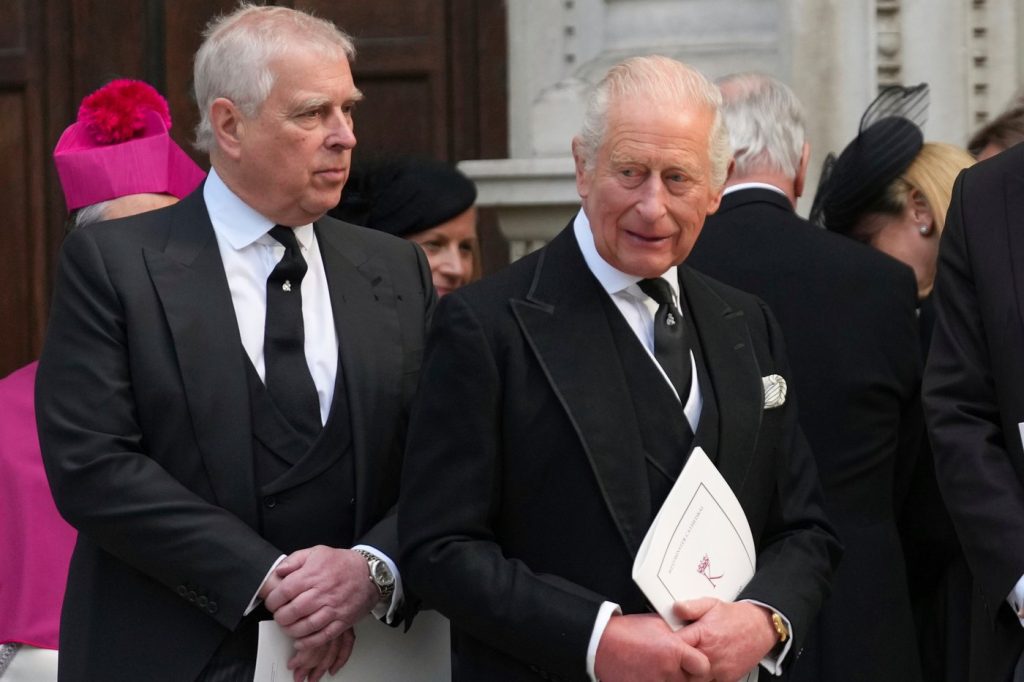The monarchy's foundational principle underscores that no individual, not even the king's brother, holds more significance. This reality has marked the end of Prince Andrew's status as a prince within the realm.
As revelations about Andrew's connections to convicted sex offender Jeffrey Epstein surfaced and Parliament began questioning his rent-free residence at a luxurious country estate near Windsor Castle, King Charles III acted decisively to protect the monarchy from any further scandals.
In an official statement from Buckingham Palace, the king announced the removal of his brother’s titles and honors, including his birthright title of "prince." Henceforth, Andrew will be recognized simply as Andrew Mountbatten Windsor. This move reflects a calculated effort to distance Andrew from the royal family in light of his controversies.
Craig Prescott, an expert in constitutional law at Royal Holloway, University of London, remarked on the necessity of this decisive action, indicating it effectively draws a clear boundary between Andrew and the rest of the royal family.
King Charles's decision followed last week's statement from Andrew indicating he would stop using his titles. However, that announcement did little to quell the torrent of negative press regarding his connections to Epstein and the calls from several Members of Parliament advocating for Andrew to be formally stripped of his titles, along with eviction from the Royal Lodge, his residence since 2004.
The potential for parliamentary debates concerning Andrew’s conduct loomed, threatening to draw more unwanted publicity to the royal family. Andrew's disgrace coincides with King Charles’s ongoing efforts to stabilize the monarchy amidst various challenges, especially as he faces health issues and prepares for the inevitable shift in succession to his eldest son, Prince William.
Experts believe that King Charles's actions signal a much-needed re-calibration of the monarchy's image, allowing for a more accountable royal structure, especially given the shifting public perception following the late Queen Elizabeth II's long reign. George Gross, a royal expert at King’s College London, noted that these actions simplify Prince William's future responsibilities and represent an unavoidable transition.
Despite the king's efforts to shield the monarchy from fallout, Andrew still faces significant personal challenges. The renewed scrutiny surrounding him was particularly intensified following the memoir of Virginia Giuffre, who asserted that she was trafficked by Epstein and had sexual encounters with Andrew when she was only 17 years old. Following Giuffre's tragic passing earlier this year, her brother publicly reiterated calls for Andrew’s prosecution.
While Andrew has consistently denied any wrongdoing or involvement with Giuffre, historian Andrew Lownie emphasized that investigations could still proceed regarding multiple allegations against him. Lownie predicted more disclosures regarding Andrew's activities could emerge as the story unfolds.
At 65, Andrew is the second son of the late Queen Elizabeth II and served over two decades in the Royal Navy before fully embracing his royal duties in 2001. His history with scandal dates back at least to 2007 when he was scrutinized for selling a property near Windsor Castle under questionable circumstances. This scrutiny only deepened when connections to unsavory figures, including a son of former Libyan leader Moammar Gadhafi, surfaced, leading to the loss of his role as the UK's special envoy for international trade.
Discussions in royal circles have suggested that Andrew often received leniency in the face of allegations due to his close relationship with the late queen. However, this compassion became untenable following a poorly received BBC interview in November 2019, where Andrew failed to express remorse for Epstein's victims, ultimately resulting in his withdrawal from all public duties.
Now, King Charles’s actions have decisively severed Andrew's remaining ties to the monarchy, with Andrew expected to vacate the Royal Lodge in favor of residing at the king’s Sandringham estate. Prescott posits that this action is part of a broader transition for the monarchy, moving toward being a public institution more amenable to scrutiny, thereby ensuring accountability to the public and parliamentary pressure.










